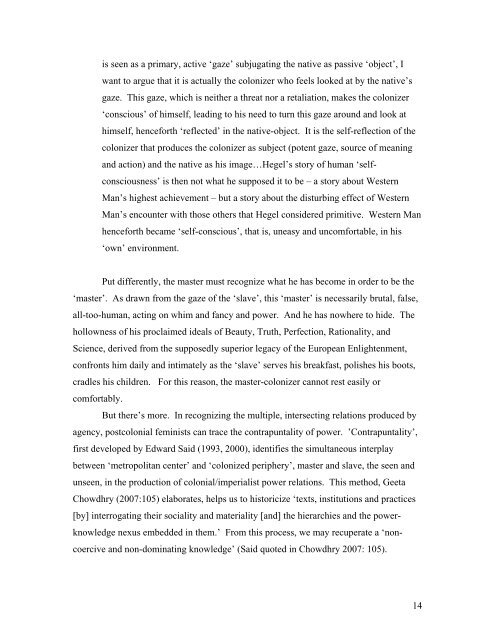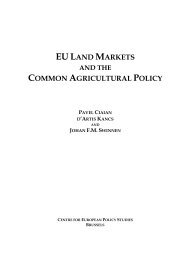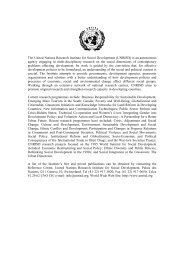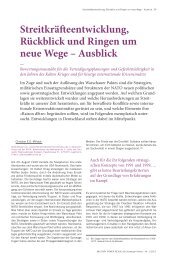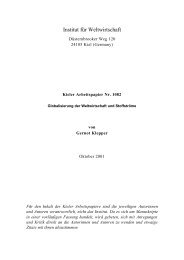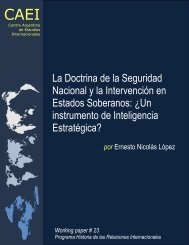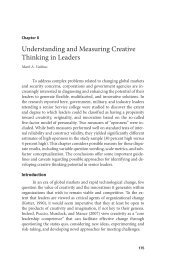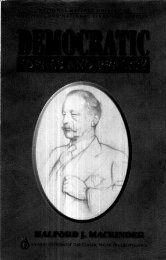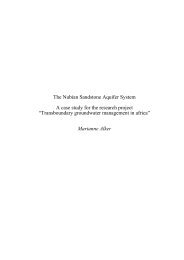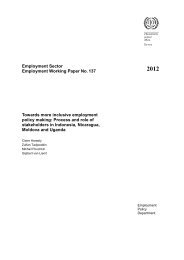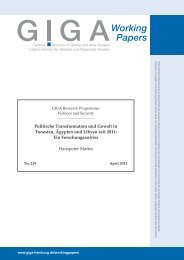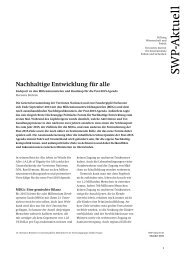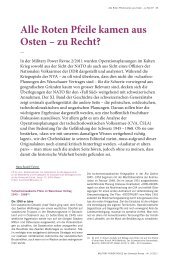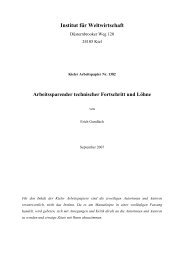A Postcolonial-Feminist Alternative to Neoliberal Self/Other Relations
A Postcolonial-Feminist Alternative to Neoliberal Self/Other Relations
A Postcolonial-Feminist Alternative to Neoliberal Self/Other Relations
You also want an ePaper? Increase the reach of your titles
YUMPU automatically turns print PDFs into web optimized ePapers that Google loves.
is seen as a primary, active ‘gaze’ subjugating the native as passive ‘object’, I<br />
want <strong>to</strong> argue that it is actually the colonizer who feels looked at by the native’s<br />
gaze. This gaze, which is neither a threat nor a retaliation, makes the colonizer<br />
‘conscious’ of himself, leading <strong>to</strong> his need <strong>to</strong> turn this gaze around and look at<br />
himself, henceforth ‘reflected’ in the native-object. It is the self-reflection of the<br />
colonizer that produces the colonizer as subject (potent gaze, source of meaning<br />
and action) and the native as his image…Hegel’s s<strong>to</strong>ry of human ‘selfconsciousness’<br />
is then not what he supposed it <strong>to</strong> be – a s<strong>to</strong>ry about Western<br />
Man’s highest achievement – but a s<strong>to</strong>ry about the disturbing effect of Western<br />
Man’s encounter with those others that Hegel considered primitive. Western Man<br />
henceforth became ‘self-conscious’, that is, uneasy and uncomfortable, in his<br />
‘own’ environment.<br />
Put differently, the master must recognize what he has become in order <strong>to</strong> be the<br />
‘master’. As drawn from the gaze of the ‘slave’, this ‘master’ is necessarily brutal, false,<br />
all-<strong>to</strong>o-human, acting on whim and fancy and power. And he has nowhere <strong>to</strong> hide. The<br />
hollowness of his proclaimed ideals of Beauty, Truth, Perfection, Rationality, and<br />
Science, derived from the supposedly superior legacy of the European Enlightenment,<br />
confronts him daily and intimately as the ‘slave’ serves his breakfast, polishes his boots,<br />
cradles his children. For this reason, the master-colonizer cannot rest easily or<br />
comfortably.<br />
But there’s more. In recognizing the multiple, intersecting relations produced by<br />
agency, postcolonial feminists can trace the contrapuntality of power. ’Contrapuntality’,<br />
first developed by Edward Said (1993, 2000), identifies the simultaneous interplay<br />
between ‘metropolitan center’ and ‘colonized periphery’, master and slave, the seen and<br />
unseen, in the production of colonial/imperialist power relations. This method, Geeta<br />
Chowdhry (2007:105) elaborates, helps us <strong>to</strong> his<strong>to</strong>ricize ‘texts, institutions and practices<br />
[by] interrogating their sociality and materiality [and] the hierarchies and the powerknowledge<br />
nexus embedded in them.’ From this process, we may recuperate a ‘noncoercive<br />
and non-dominating knowledge’ (Said quoted in Chowdhry 2007: 105).<br />
14


